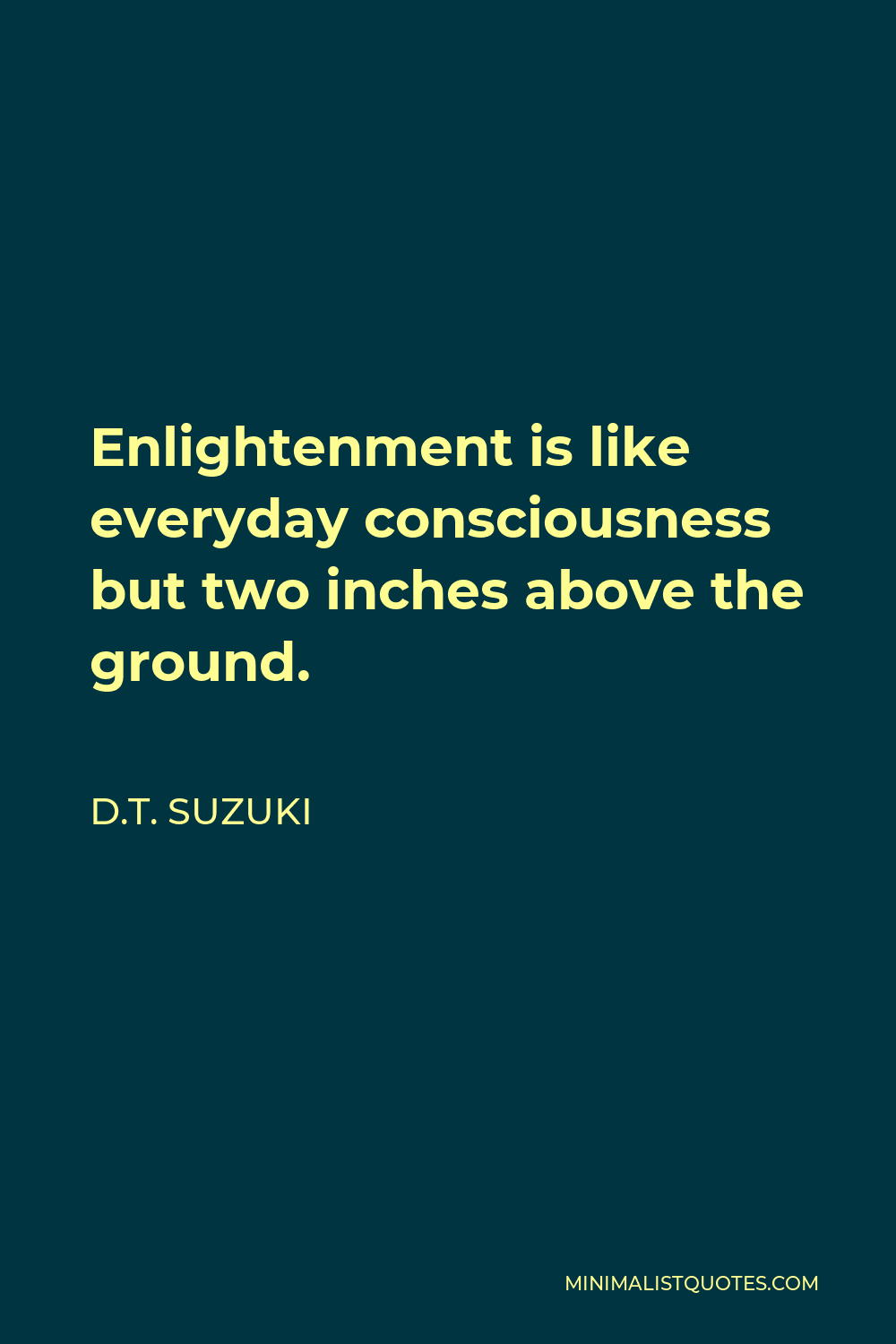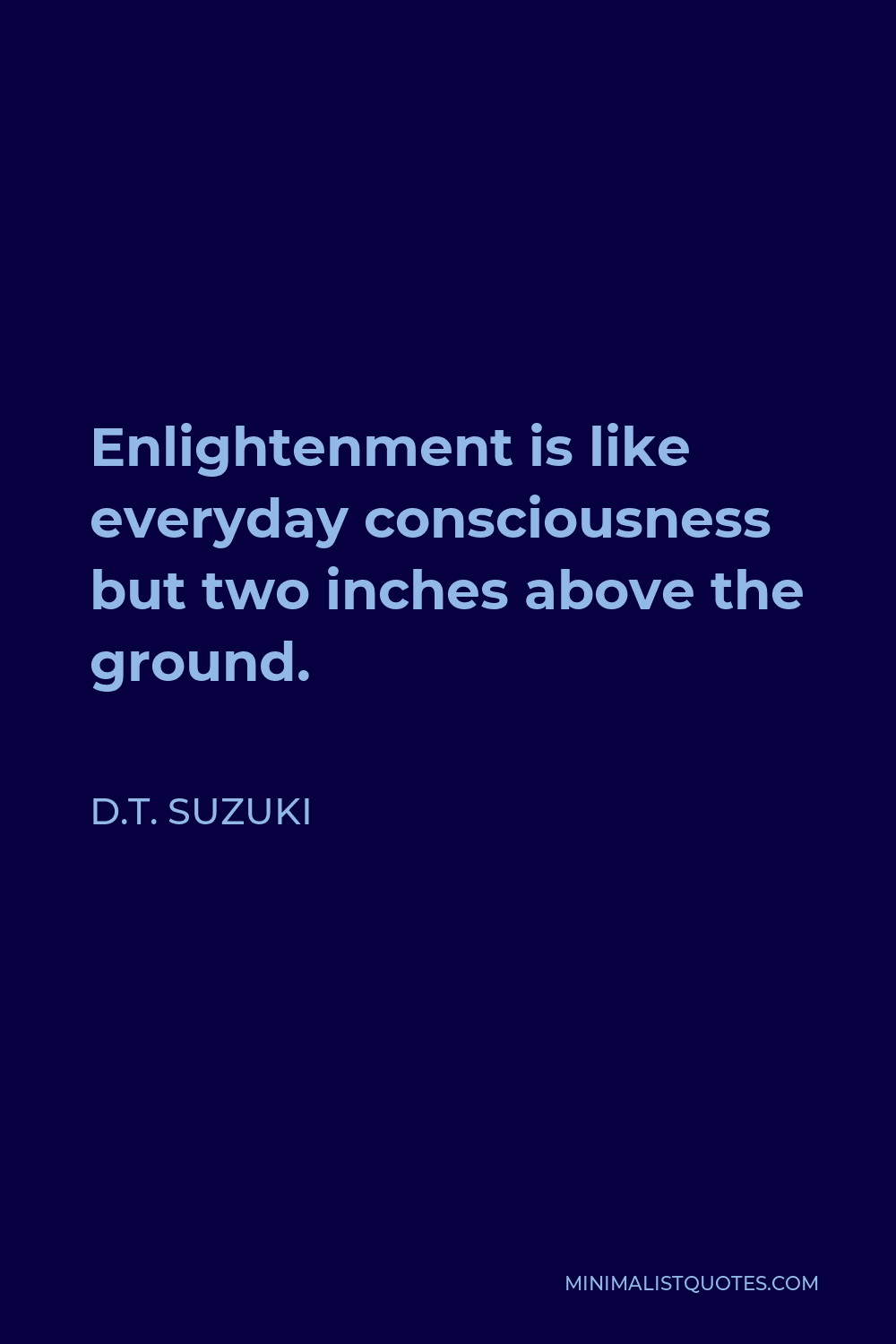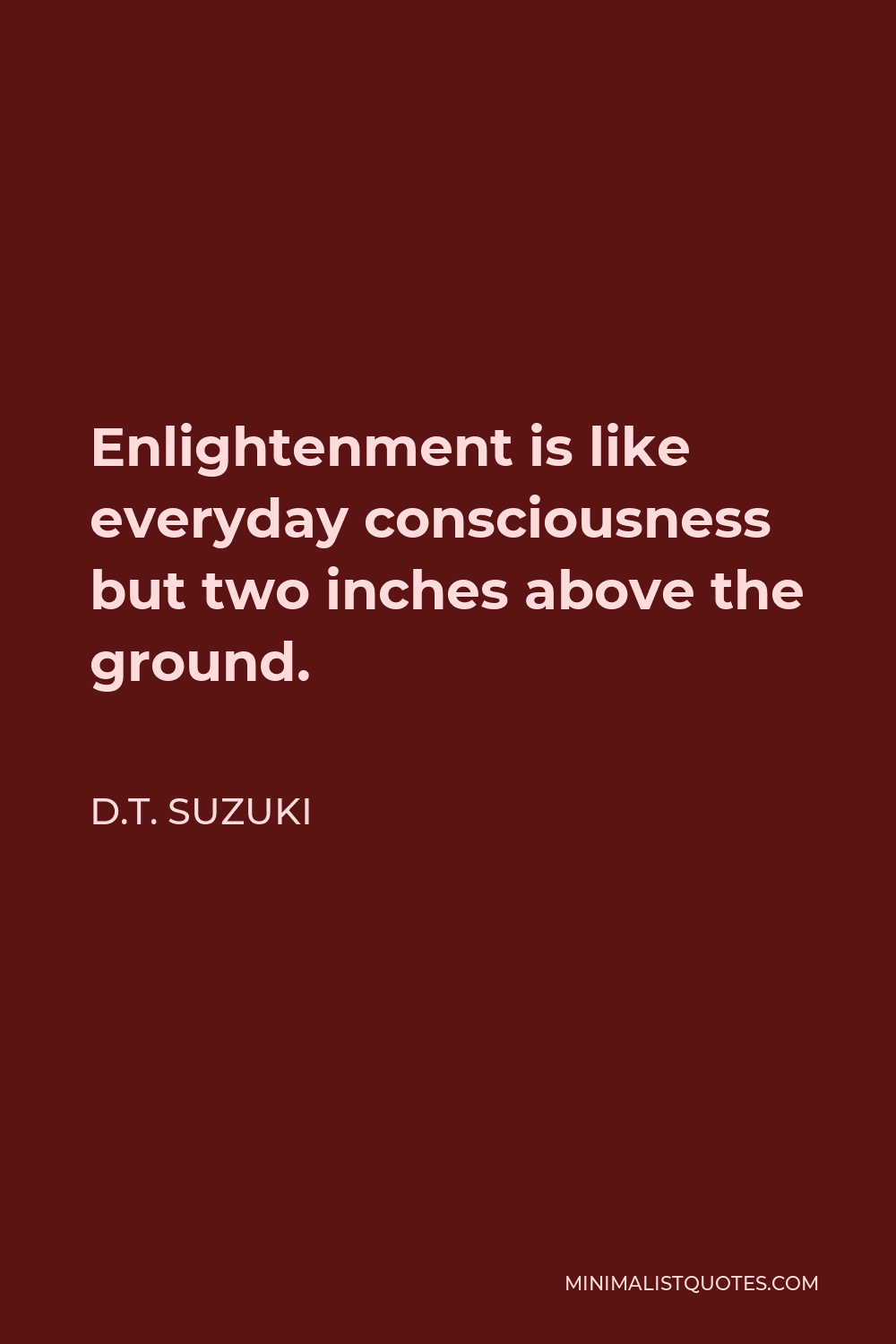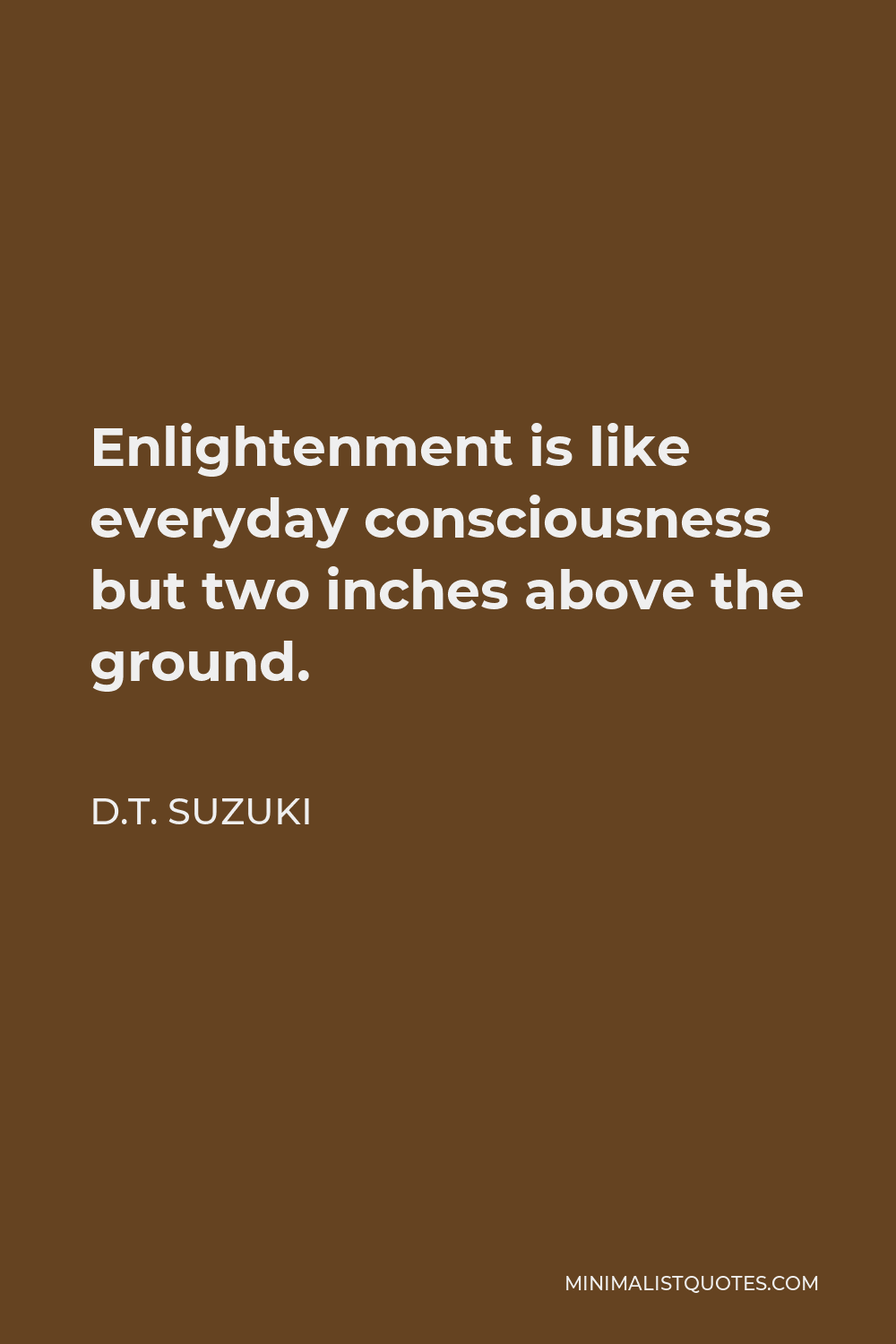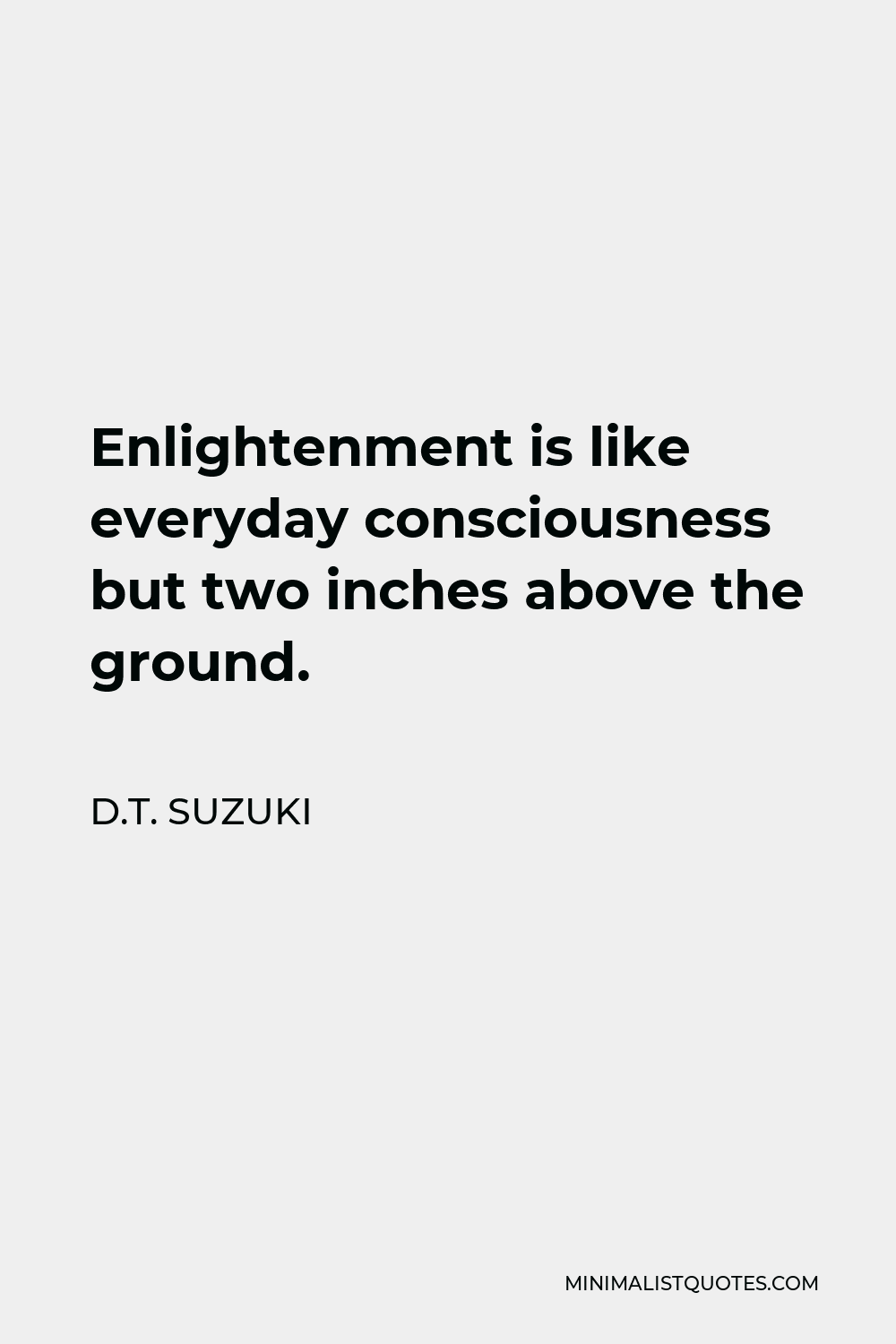I raise my hand; I take a book from the other side of this desk; I hear the boys playing ball outside my window; I see the clouds blown away beyond the neighboring woods:-in all these I am practicing Zen, I am living Zen. No worldly discussion is necessary, or any explanation.
D.T. SUZUKIEnlightenment is like everyday consciousness but two inches above the ground.
More D.T. Suzuki Quotes
-





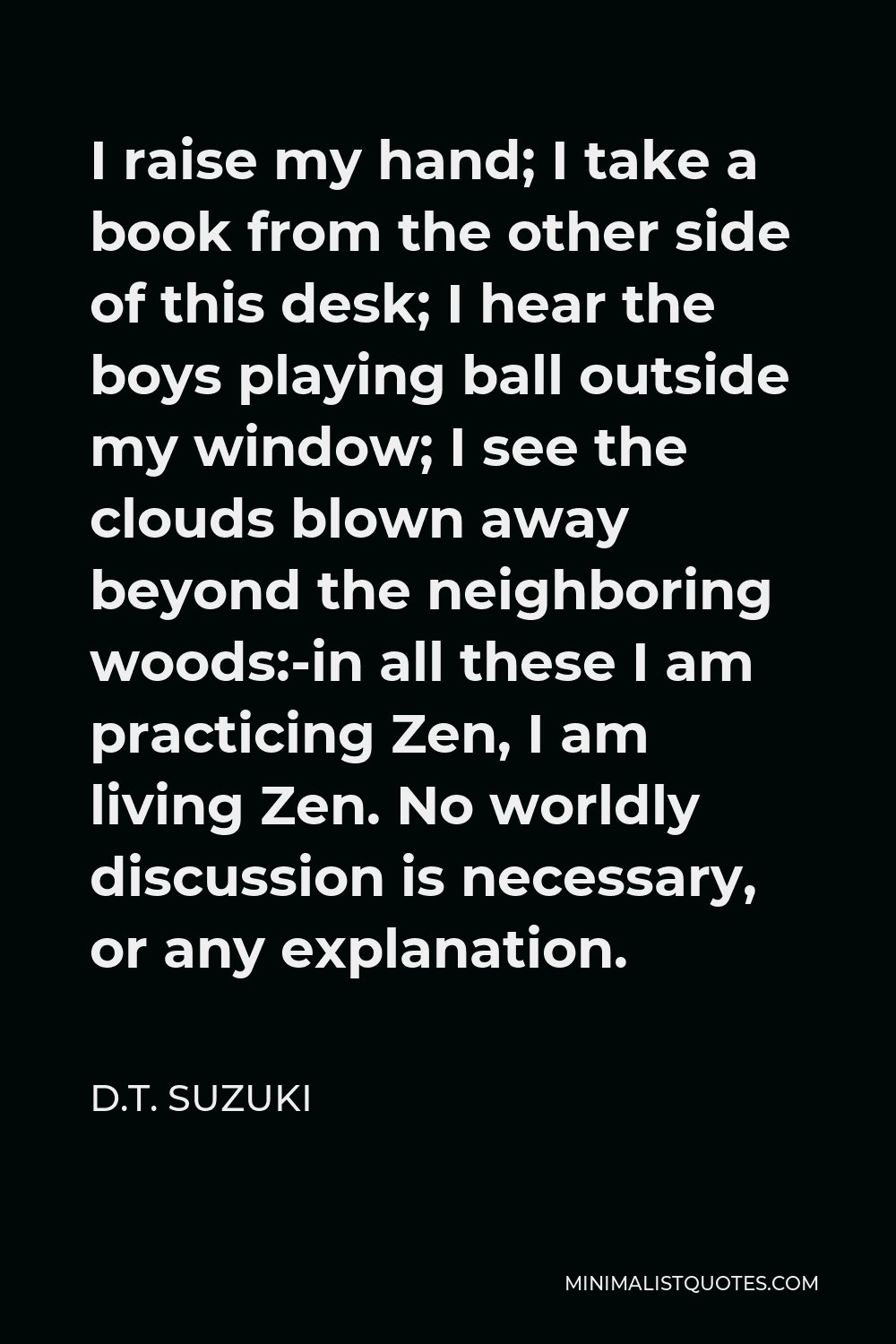
-






Zen has no business with ideas.
D.T. SUZUKI -







When the identity is realized, I as swordsman see no opponent confronting me and threatening to strike me.
D.T. SUZUKI -





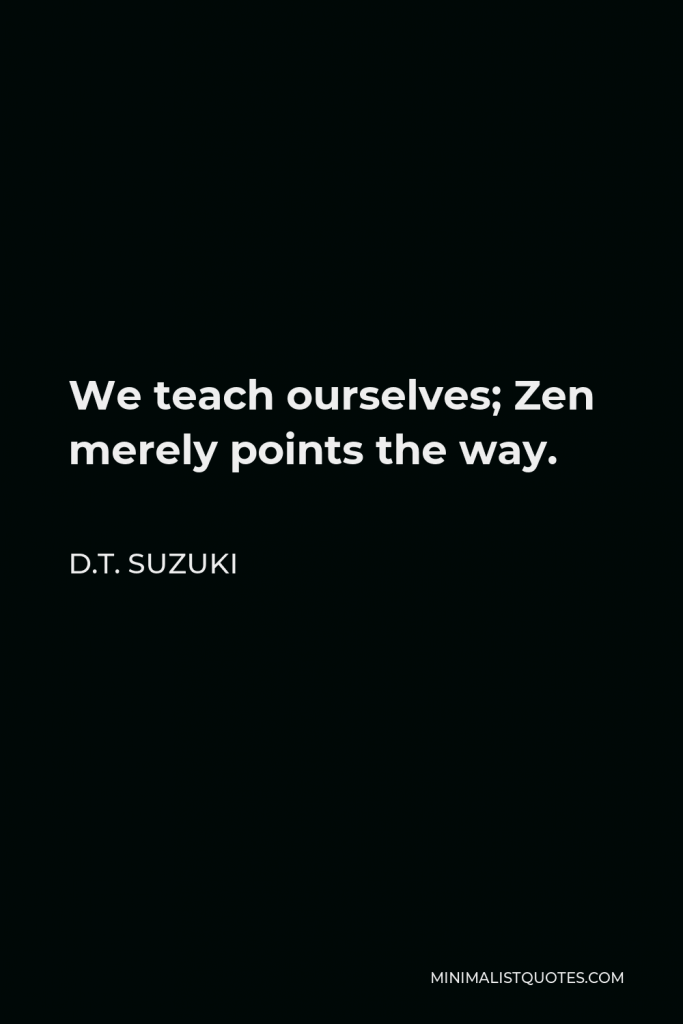

We teach ourselves; Zen merely points the way.
D.T. SUZUKI -





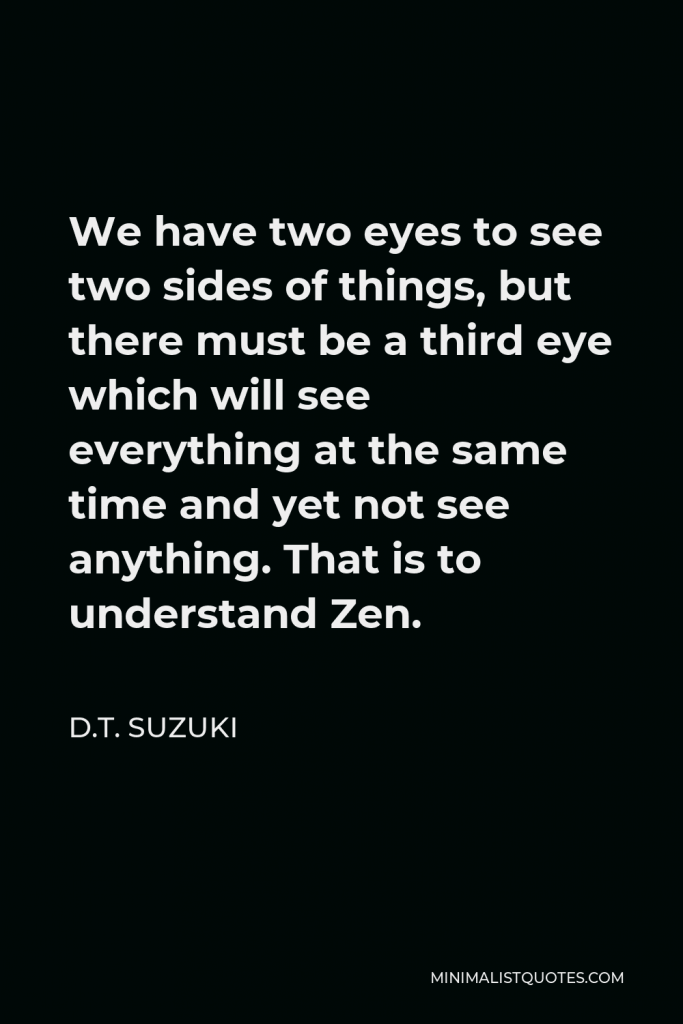

We have two eyes to see two sides of things, but there must be a third eye which will see everything at the same time and yet not see anything. That is to understand Zen.
D.T. SUZUKI -





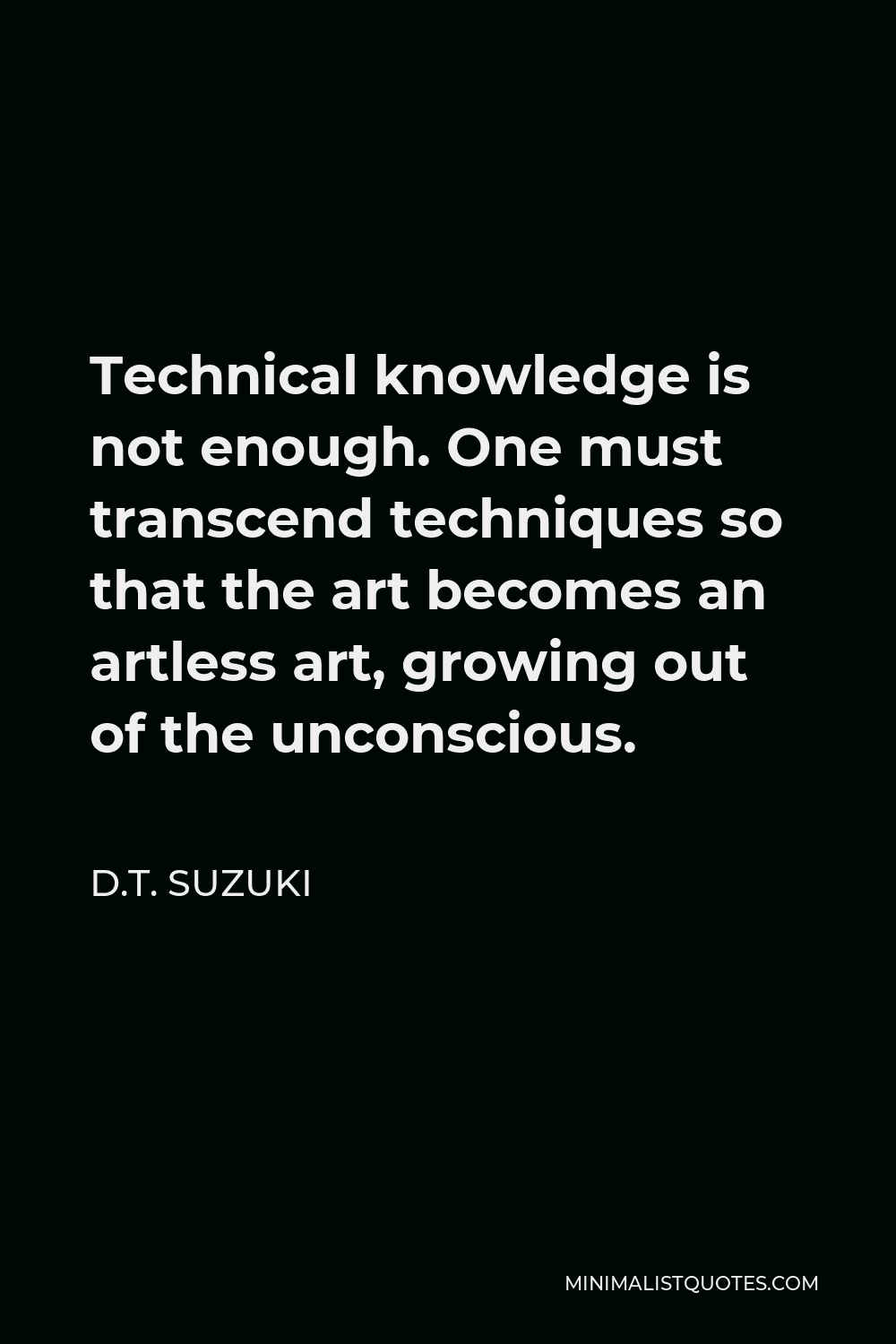
Technical knowledge is not enough. One must transcend techniques so that the art becomes an artless art, growing out of the unconscious.
D.T. SUZUKI -






Zen is the spirit of a man. Zen believes in his inner purity and goodness. Whatever is superadded or violently torn away, injures the wholesomeness of the spirit. Zen, therefore, is emphatically against all religious conventionalism.
D.T. SUZUKI -





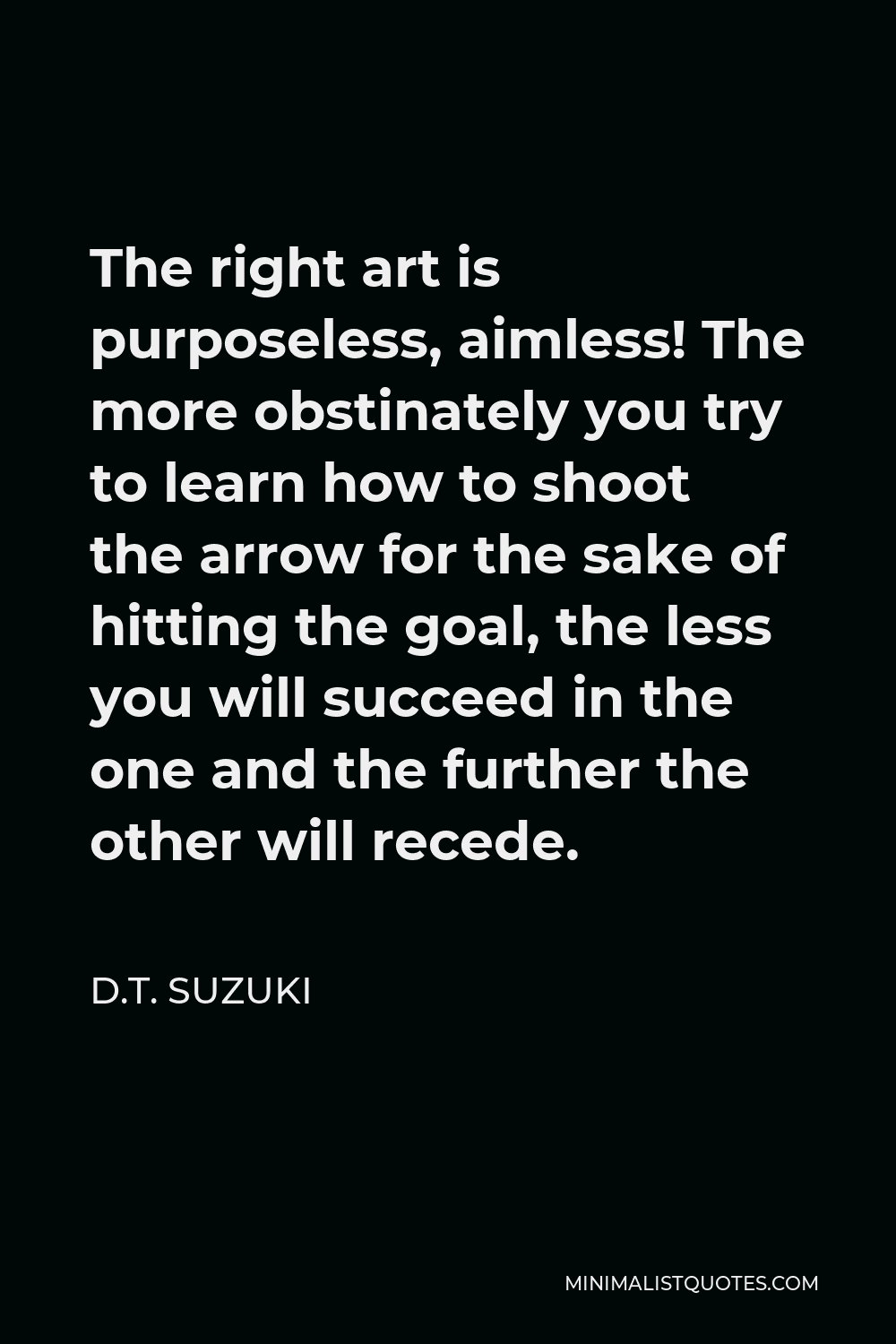
The right art is purposeless, aimless! The more obstinately you try to learn how to shoot the arrow for the sake of hitting the goal, the less you will succeed in the one and the further the other will recede.
D.T. SUZUKI -





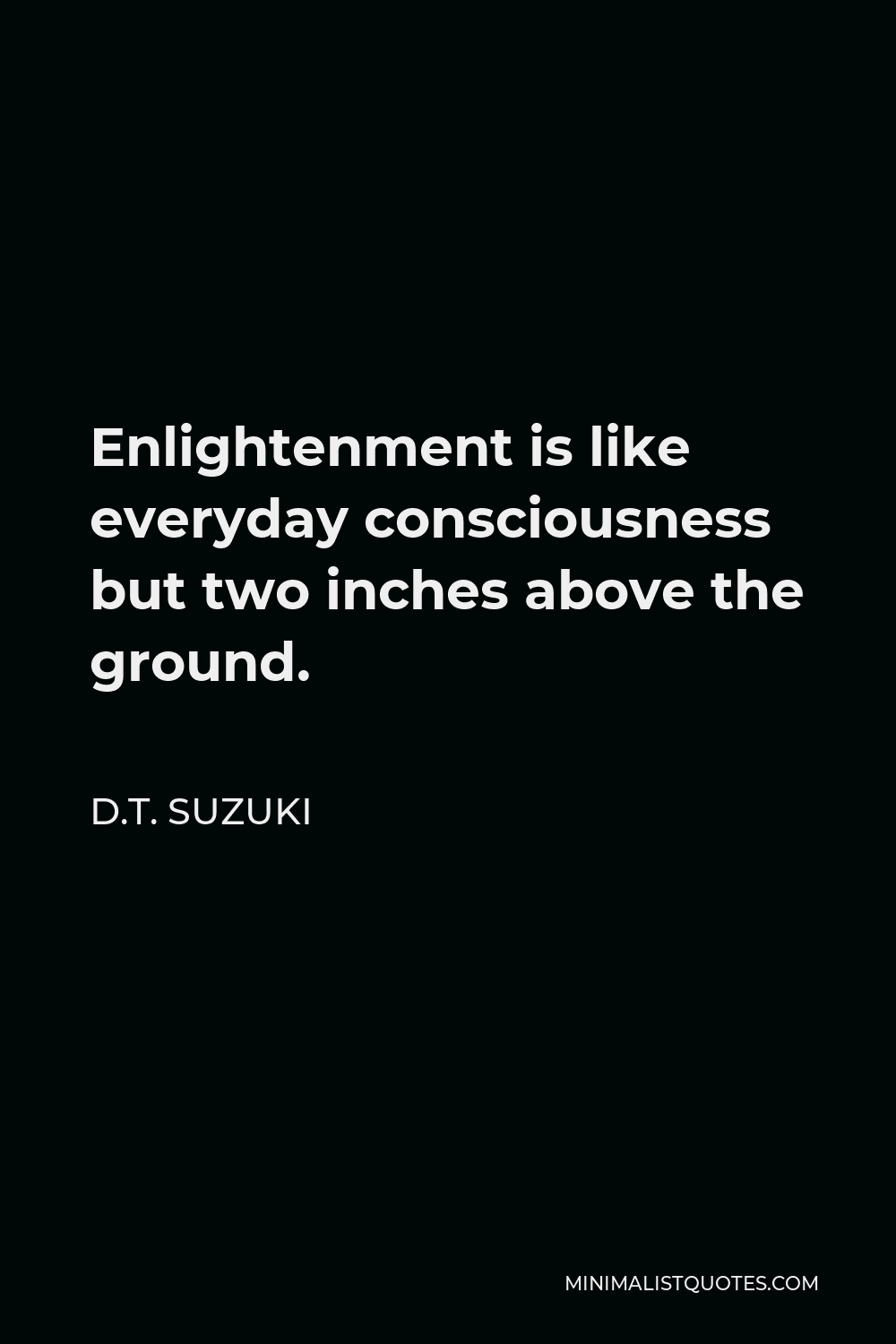
Enlightenment is like everyday consciousness but two inches above the ground.
D.T. SUZUKI -





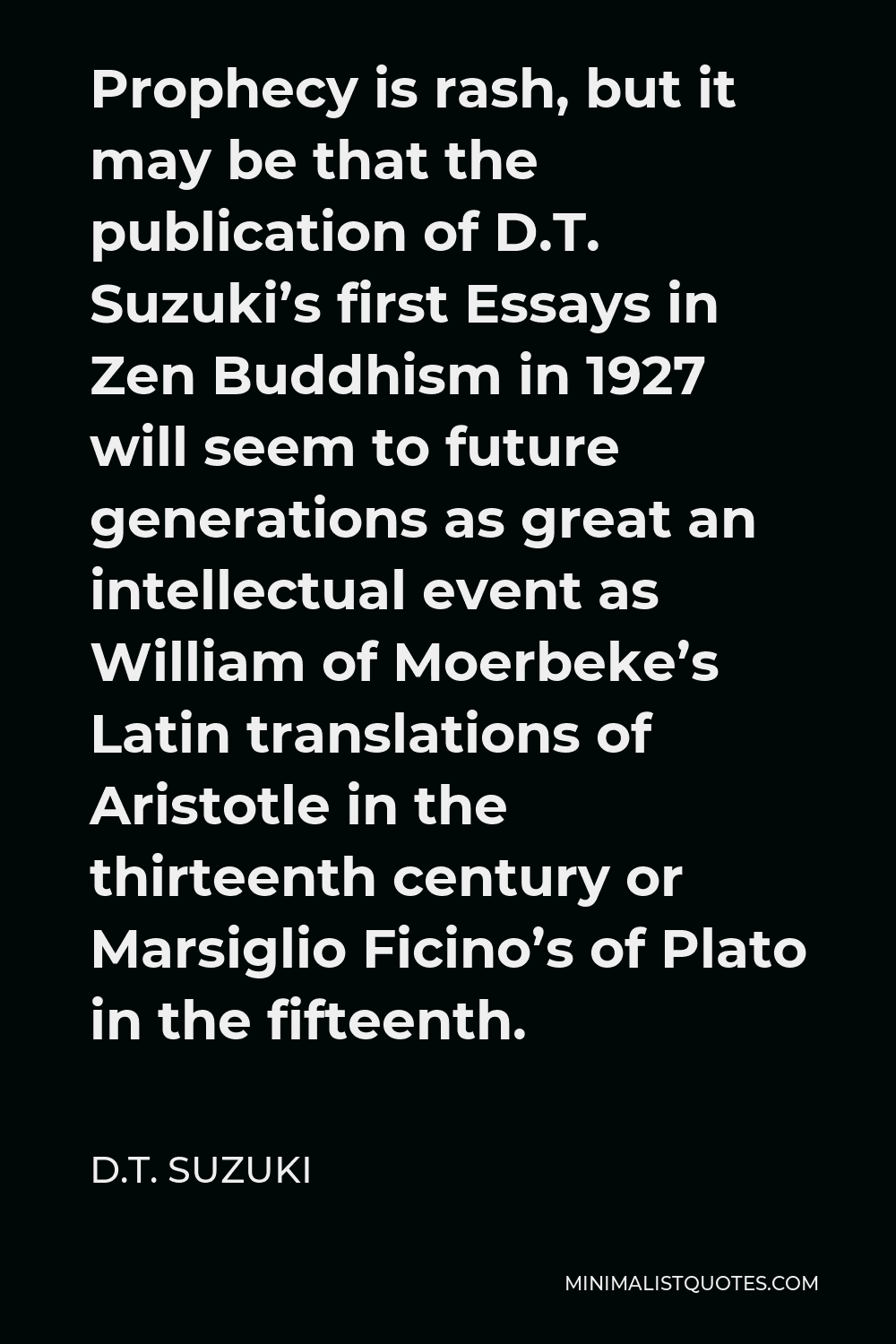
Prophecy is rash, but it may be that the publication of D.T. Suzuki’s first Essays in Zen Buddhism in 1927 will seem to future generations as great an intellectual event as William of Moerbeke’s Latin translations of Aristotle in the thirteenth century or Marsiglio Ficino’s of Plato in the fifteenth.
D.T. SUZUKI -





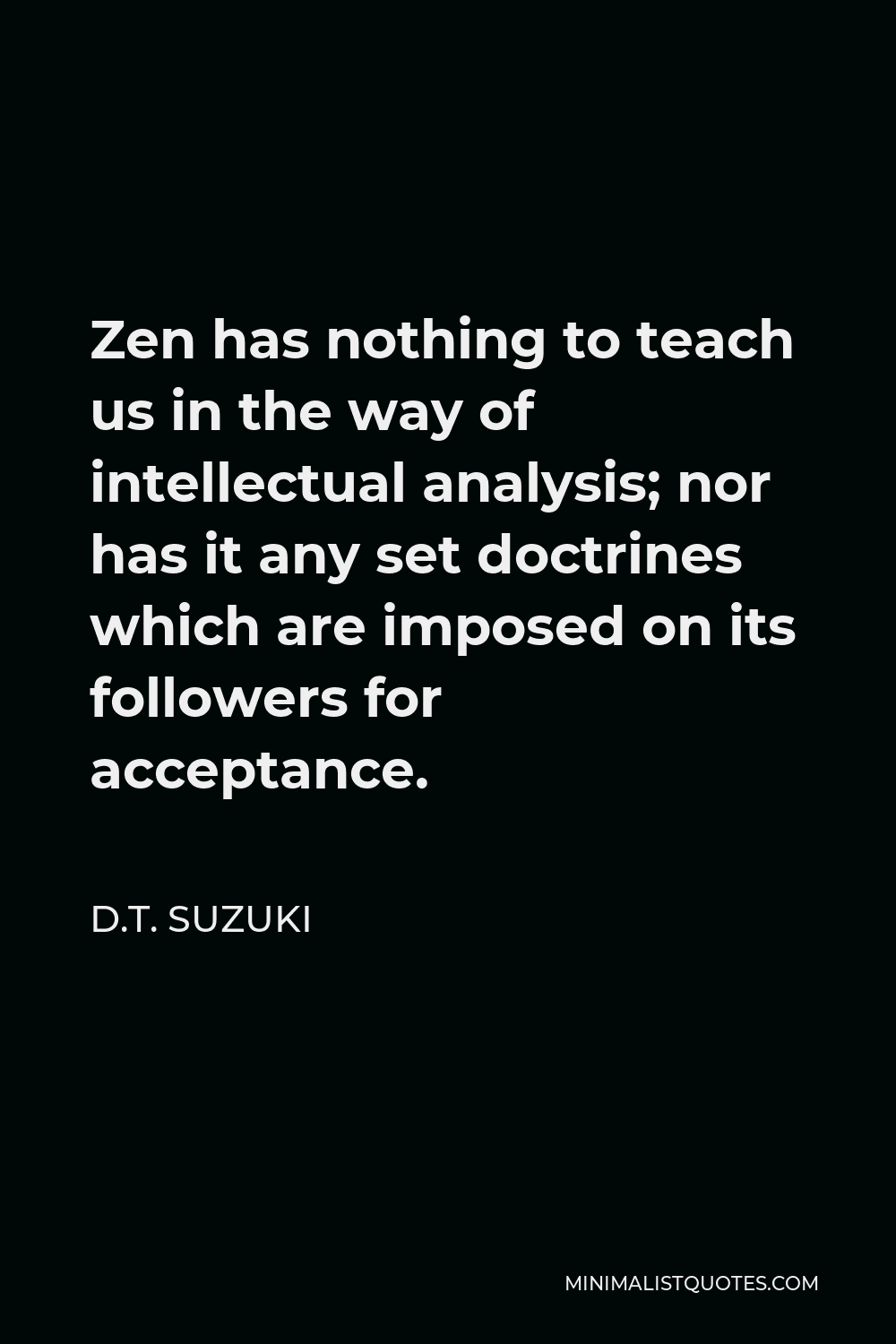
Zen has nothing to teach us in the way of intellectual analysis; nor has it any set doctrines which are imposed on its followers for acceptance.
D.T. SUZUKI -





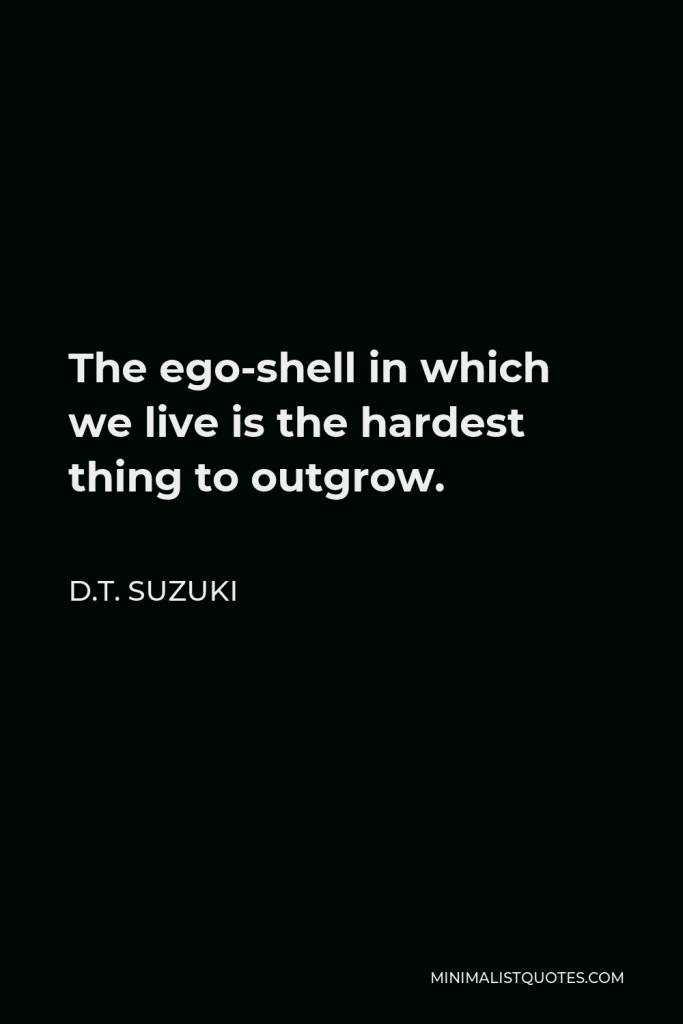

The ego-shell in which we live is the hardest thing to outgrow.
D.T. SUZUKI -





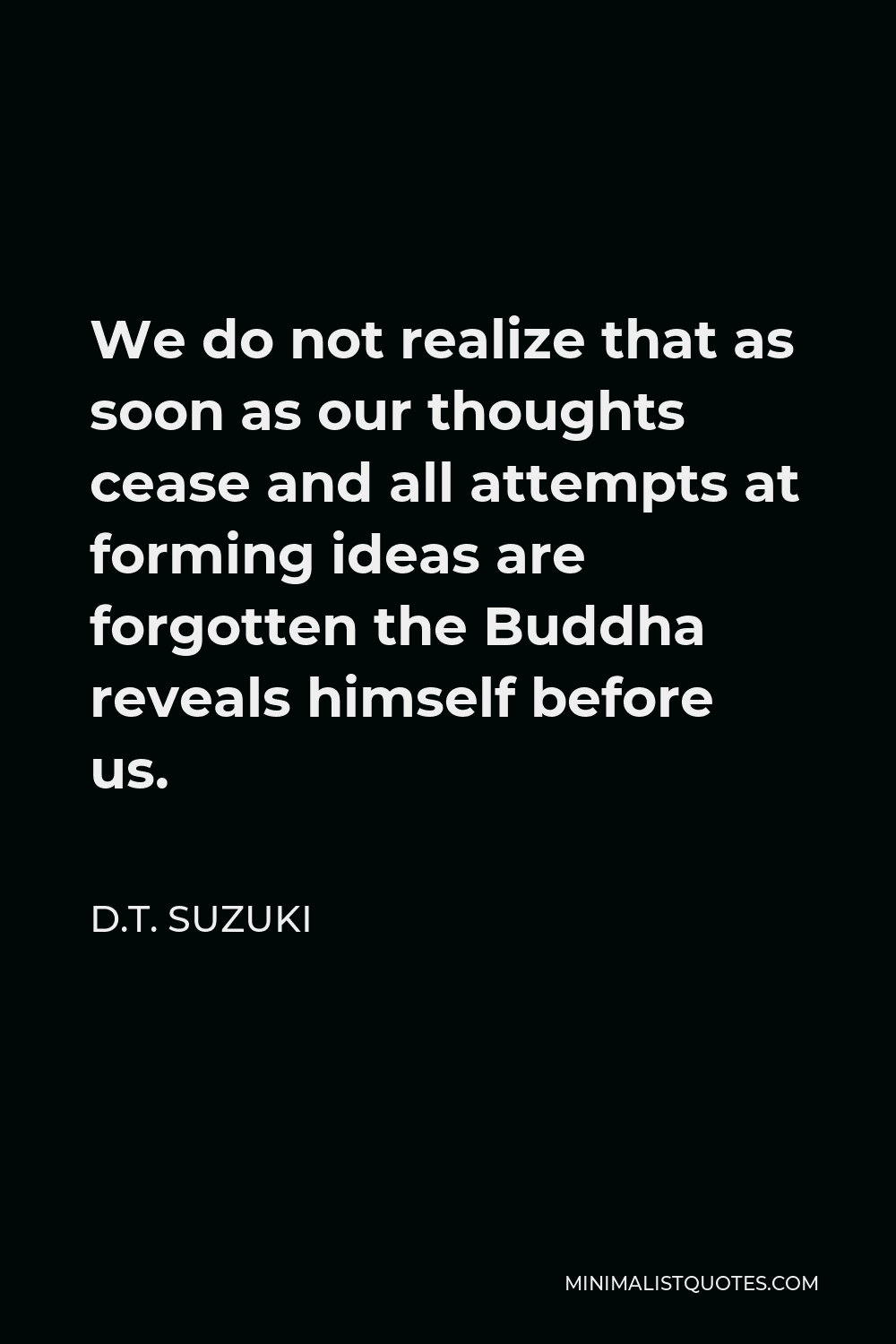
We do not realize that as soon as our thoughts cease and all attempts at forming ideas are forgotten the Buddha reveals himself before us.
D.T. SUZUKI -





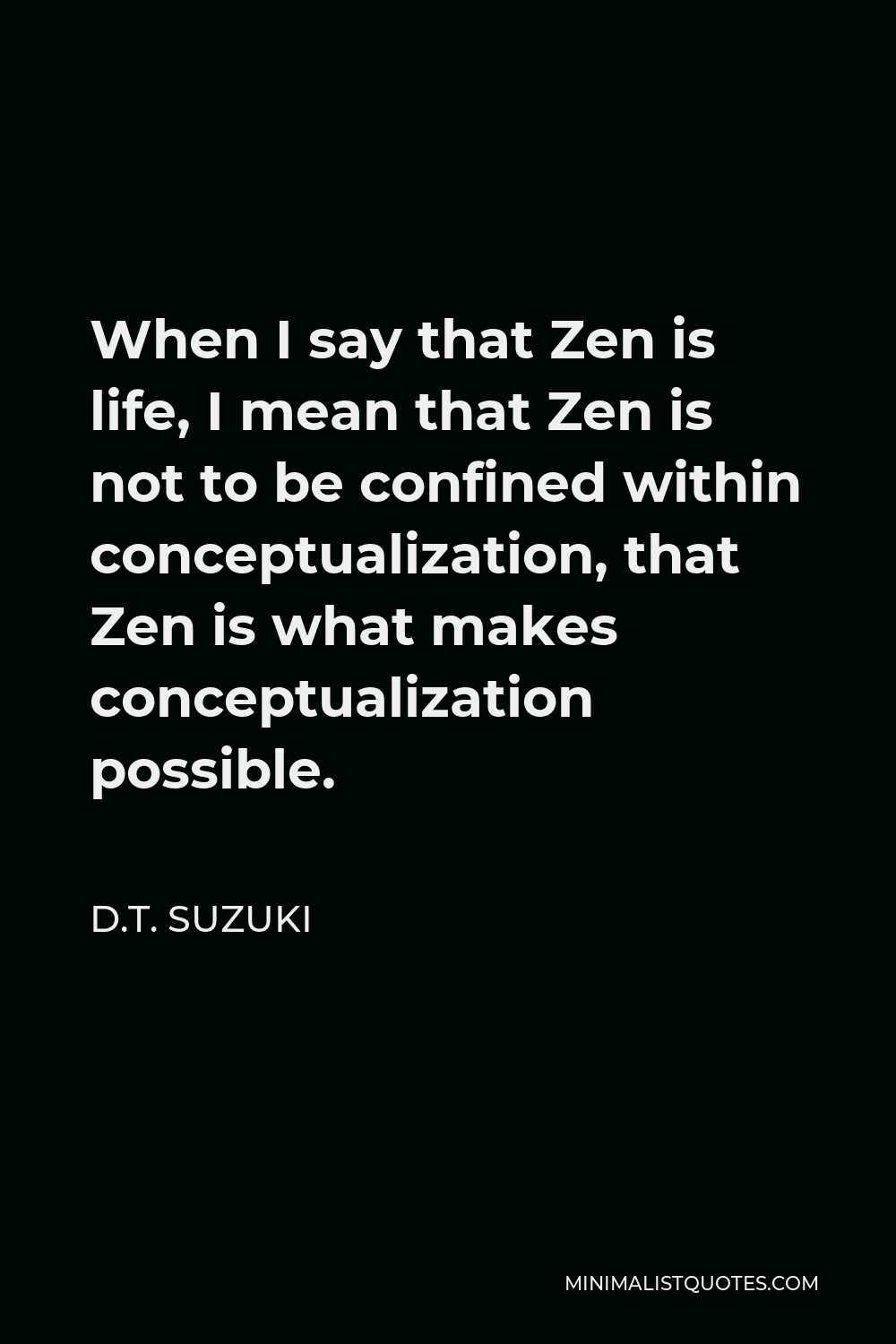
When I say that Zen is life, I mean that Zen is not to be confined within conceptualization, that Zen is what makes conceptualization possible.
D.T. SUZUKI -





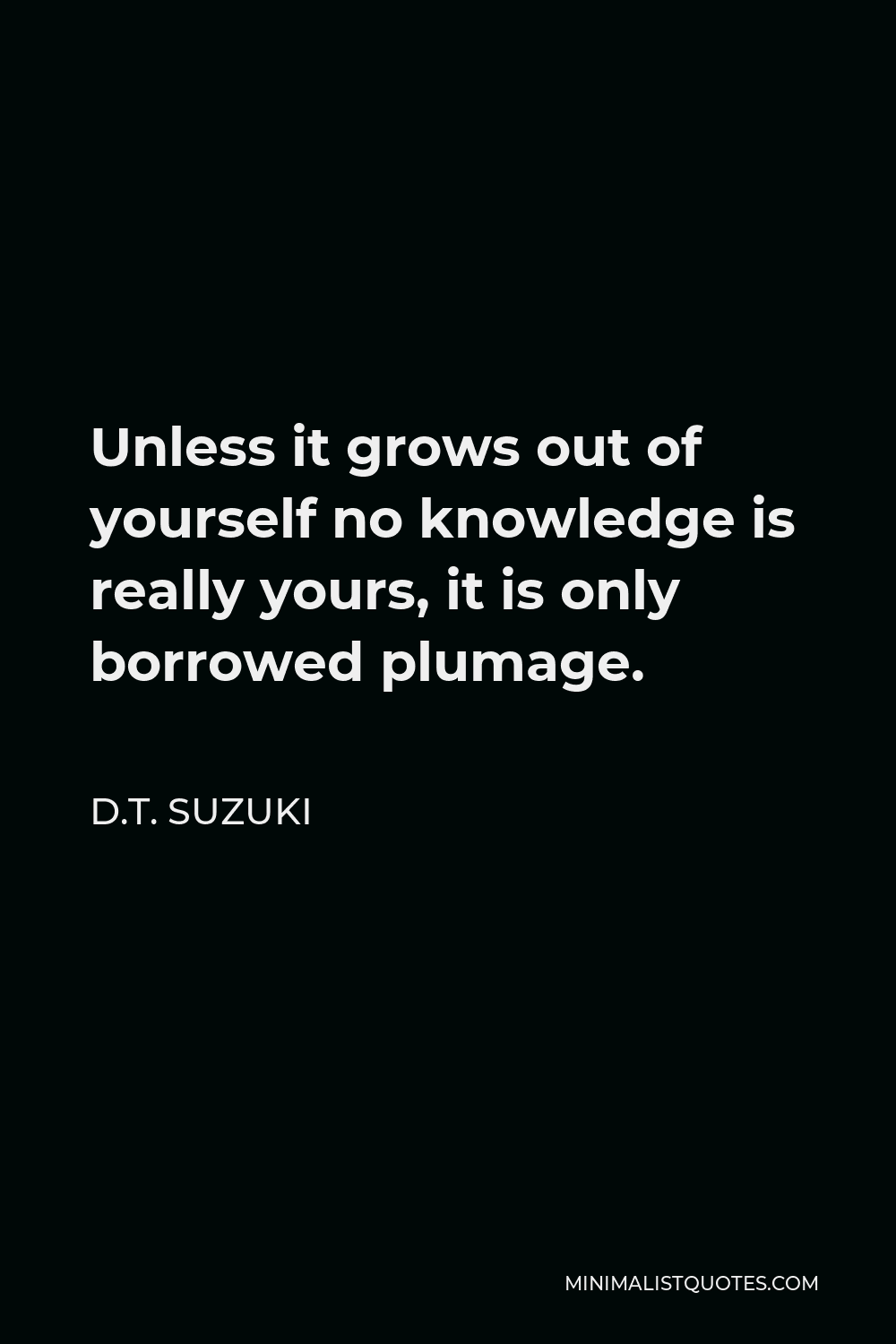
Unless it grows out of yourself no knowledge is really yours, it is only borrowed plumage.
D.T. SUZUKI -





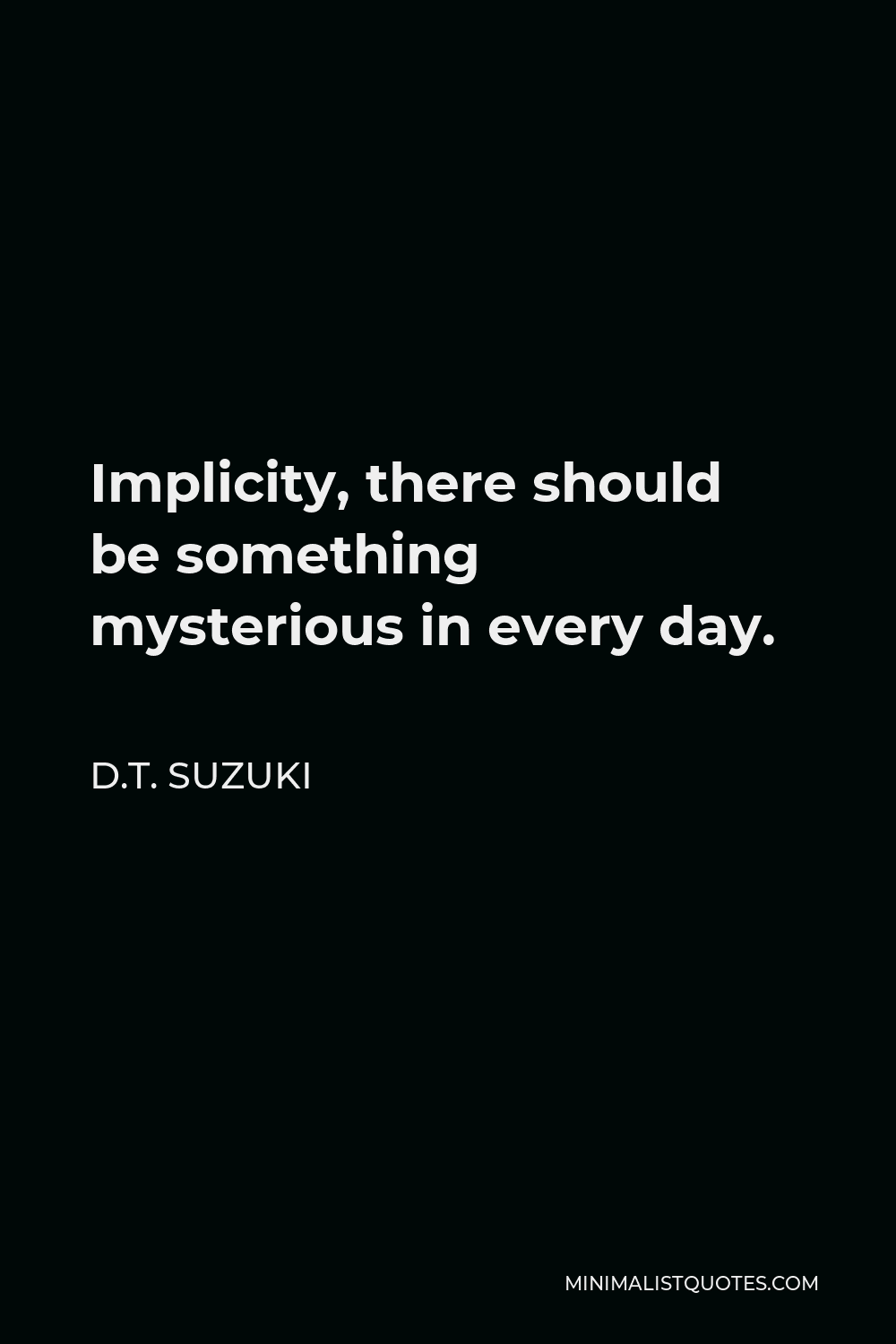
Implicity, there should be something mysterious in every day.
D.T. SUZUKI
